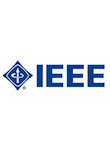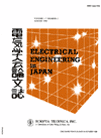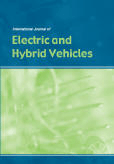
Batteries-Basel
Scope & Guideline
Empowering Research in Energy Solutions
Introduction
Aims and Scopes
- Battery Materials and Chemistry:
Research on various materials for battery electrodes and electrolytes, including lithium-ion, sodium-ion, and zinc-ion systems. This includes the exploration of novel compounds, nanostructured materials, and their electrochemical properties. - Battery Management Systems and Diagnostics:
Development of advanced algorithms and techniques for the monitoring and management of battery performance, including state-of-charge (SoC) and state-of-health (SoH) estimation using machine learning and data-driven methods. - Thermal Management and Safety:
Studies focusing on the thermal behavior of batteries, including thermal runaway prevention, efficient cooling systems, and safety assessments to ensure the reliability of battery technologies. - Recycling and Sustainability:
Investigation into recycling methods for spent batteries, lifecycle assessments, and sustainable practices to enhance the environmental impact of battery technologies. - Innovative Manufacturing Techniques:
Research into novel fabrication methods for battery components, including electrode manufacturing, assembly processes, and the use of advanced materials in battery production. - Energy Storage Applications:
Exploration of various applications of batteries in energy storage systems, including electric vehicles, renewable energy integration, and grid stabilization.
Trending and Emerging
- Artificial Intelligence and Machine Learning in Battery Management:
An increasing number of papers are exploring the application of AI and machine learning techniques for predictive maintenance, performance optimization, and anomaly detection in battery systems. - Solid-State Batteries:
Research into solid-state battery technologies is rapidly emerging, with a focus on developing safe, high-performance alternatives to traditional lithium-ion batteries, driven by the need for better energy density and safety. - Sustainability and Lifecycle Assessment:
There is a growing emphasis on sustainability, with researchers focusing on lifecycle assessments, recycling technologies, and the environmental impacts of battery production and disposal. - Advanced Thermal Management Solutions:
Innovative thermal management strategies are trending, aimed at improving battery efficiency and safety through novel cooling technologies and materials. - Flexible and Lightweight Battery Technologies:
Emerging research on flexible and lightweight batteries is gaining attention, catering to the growing demand for portable and wearable electronic devices. - Electrode Material Innovation:
There is a notable trend in the exploration of novel electrode materials, including biomaterials and nanostructured composites, to enhance battery performance and capacity.
Declining or Waning
- Lead-Acid Battery Technologies:
Research on lead-acid batteries is becoming less frequent as the focus shifts towards more advanced technologies such as lithium-ion and sodium-ion batteries, which offer higher energy densities and better performance. - Traditional Battery Recycling Methods:
Older recycling methodologies are gradually being replaced by more innovative and efficient processes, reflecting the journal's trend towards sustainability and advanced material recovery techniques. - Basic Electrochemical Characterization:
While foundational studies remain important, there is a notable decline in publications focusing solely on basic electrochemical characterizations without integration into broader applications or advanced methodologies. - Single-Use Battery Research:
Research on single-use or disposable batteries is waning as the industry moves towards sustainable and rechargeable solutions, emphasizing the need for longevity and recyclability in battery design.
Similar Journals

IEEE Transactions on Transportation Electrification
Driving Innovation in Transportation ElectrificationIEEE Transactions on Transportation Electrification, published by the IEEE-Institute of Electrical and Electronics Engineers, is a premier journal dedicated to advancing the field of transportation electrification. With its ISSN of 2332-7782, this journal has established itself as a key resource in the domains of Automotive Engineering, Electrical and Electronic Engineering, Energy Engineering and Power Technology, and Transportation, earning prestigious Q1 quartile rankings across these categories in 2023. Covering a wide scope, it publishes high-quality research from 2015 to 2024, appealing to researchers, professionals, and students alike. The journal seeks to provide a platform for innovative ideas and technologies that rigorously address the challenges of electrification in the transportation sector, thereby contributing significantly to sustainability and efficiency in modern transport systems. With high Scopus rankings—ranked 8th in Automotive Engineering and 26th in Energy Engineering—this journal is an essential publication for those looking to stay at the forefront of transportation electrification and its implications for future energy systems.

TRANSPORTATION
Driving Progress in Transport Policies and TechnologiesTRANSPORTATION is a premier academic journal published by Springer, focusing on the dynamic and interdisciplinary field of transportation studies. Established in 1972 and set to release its latest findings through 2024, the journal has garnered a strong reputation, reflected in its impressive impact factor and Q1 quartile rankings across key categories including Civil and Structural Engineering, Development, and Transportation. With a robust Scopus ranking that places it in the top percentile of its fields (ranked #16/306 in Social Sciences - Development, #27/379 in Engineering - Civil and Structural Engineering, and #23/141 in Social Sciences - Transportation), "TRANSPORTATION" is crucial for researchers, professionals, and students alike who seek to expand their understanding of innovative transport systems, policies, and technologies. By offering in-depth research articles, reviews, and case studies, the journal serves as a vital resource for advancing academic knowledge and practical solutions in the transportation sector. Part of a thriving academic community, contributors and readers alike are encouraged to engage with the latest research to foster development in pressing issues related to mobility and infrastructure.

Journal of Modern Power Systems and Clean Energy
Unleashing Potential in Power Systems and Sustainable Practices.Journal of Modern Power Systems and Clean Energy is a leading academic platform dedicated to advancing the fields of energy engineering, power technology, and renewable energy. Published by the prestigious STATE GRID ELECTRIC POWER RESEARCH INSTITUTE in China, this Open Access journal has been a significant contributor to the dialogue on sustainable energy solutions since its inception in 2013. With a Q1 ranking in both the Energy Engineering and Power Technology and Renewable Energy, Sustainability and the Environment categories, it serves a crucial role for researchers and professionals striving to push the boundaries of innovation in power systems and clean energy technologies. The journal’s impact is reflected in its impressive Scopus rankings, placing it in the top 10% of its categories, making it an invaluable resource for academia and industry alike. The Journal of Modern Power Systems and Clean Energy invites submission of original articles, reviews, and case studies that resonate with its mission of promoting sustainability and addressing contemporary energy challenges.

eScience
Advancing Sustainable Solutions Through Innovative ResearcheScience, published by KEAI PUBLISHING LTD, is an innovative open-access journal that has rapidly established itself as a leading platform in the fields of Electrochemistry, Materials Chemistry, and Renewable Energy, Sustainability, and the Environment. Since its inception in 2021, eScience has garnered recognition for its high-quality research, achieving an impressive Q1 ranking in each of its primary categories as of 2023. With a remarkable Scopus ranking—placing it among the top percentile of journals in these disciplines—eScience serves as an essential resource for researchers and practitioners aiming to advance knowledge and application in sustainable practices and materials innovation. As an open-access journal, eScience supports widespread dissemination of vital research, ensuring accessibility for all, which is critical in addressing contemporary global challenges. The journal's commitment to fostering interdisciplinary dialogue and collaboration positions it as a cornerstone for those dedicated to pushing the boundaries of scientific discovery.

ACTA CHIMICA SINICA
Connecting Researchers through Cutting-edge Chemical StudiesACTA CHIMICA SINICA, published by SCIENCE PRESS, is a distinguished peer-reviewed journal in the realm of Chemistry, specifically focusing on general and miscellaneous chemistry fields. Since its inception in 1982, the journal has consistently contributed to the advancement of chemical research in China and beyond, maintaining a reputable standing within the academic community, evidenced by its 2023 Scopus ranking of #197 out of 408 in its category. With a current impact factor placing it in the Q3 quartile, ACTA CHIMICA SINICA aims to disseminate innovative research findings, covering a wide spectrum of topics within the discipline. Although it is not an open-access journal, it offers various access options through institutional subscriptions, ensuring that its high-quality content is available to a broad audience. Researchers, professionals, and students alike will find this journal a vital resource for keeping abreast of developments in the field and for contributing their own findings to an engaged scientific community.

Battery Energy
Advancing Sustainable Solutions for Tomorrow's Power.Battery Energy is a pioneering open-access journal established by Wiley in 2022, dedicated to the dynamic field of energy storage and battery technologies. With an E-ISSN of 2768-1696, this journal plays a pivotal role in disseminating innovative research and advancements pertinent to the energy sector, including renewable energy solutions and sustainability practices. It holds a respectable position in Scopus rankings, being placed 32nd out of 78 in the Energy category and 130th out of 270 in Renewable Energy, Sustainability, and the Environment, showcasing its growing impact within the academic community. The journal aims to provide an inclusive platform for researchers, professionals, and students to share insights, foster collaboration, and tackle the pressing challenges associated with battery energy storage. By promoting open access, Battery Energy ensures that cutting-edge research is readily available to a global audience, facilitating the continued evolution of battery technologies for a sustainable future.

Vehicles
Transforming Ideas into Automotive AdvancementsVehicles is a pioneering open access journal published by MDPI since 2019, dedicated to advancing knowledge in the fields of Automotive Engineering and Electrical and Electronic Engineering. Based in Switzerland, the journal provides a valuable platform for researchers, professionals, and students to disseminate high-quality, peer-reviewed research across essential areas of vehicle technology and innovation. With an impressive Q2 ranking in both Automotive Engineering and Electrical and Electronic Engineering as of 2023, and a notable placement in the Scopus rankings (Rank #37/125 and #320/797, respectively), Vehicles plays a critical role in fostering collaboration and knowledge exchange within these fast-evolving disciplines. Through its commitment to Open Access, Vehicles ensures that cutting-edge research is accessible to a global audience, thereby contributing significantly to the collective understanding and development of sustainable transportation solutions. Situated at the crossroads of engineering innovation and practical application, Vehicles invites contributions that explore contemporary challenges and promote transformative advancements in the automotive sector.

ELECTRICAL ENGINEERING IN JAPAN
Connecting Researchers to the Pulse of EngineeringELECTRICAL ENGINEERING IN JAPAN is a leading academic journal published by Wiley, dedicated to advancing the field of electrical and electronic engineering as well as energy engineering and power technology. With an ISSN of 0424-7760 and an E-ISSN of 1520-6416, this journal has been a vital resource since its inception in 1968, appealing to a diverse audience including researchers, professionals, and students interested in the latest innovations and developments within the field. Despite currently holding a Q4 ranking in both Electrical and Electronic Engineering and Energy Engineering and Power Technology categories, the journal remains committed to disseminating significant research that contributes to technological advancements. Although it does not offer Open Access options, articles are peer-reviewed to ensure academic rigor and integrity. With each publication, ELECTRICAL ENGINEERING IN JAPAN continues to play an essential role in fostering a deeper understanding of the engineering landscape, ultimately helping to shape the future of electrical engineering on a global scale.

International Journal of Electric and Hybrid Vehicles
Pioneering Research in Automotive Engineering and Renewable EnergyThe International Journal of Electric and Hybrid Vehicles, published by INDERSCIENCE ENTERPRISES LTD, serves as a pivotal platform for scholarly discourse within the automotive engineering and renewable energy sectors. Established in 2007, this journal focuses on advancing research related to electric and hybrid vehicle technologies, encompassing innovations in design, performance, and environmental sustainability. With its rankings reflecting a Q3 status in Automotive Engineering and Fuel Technology, along with a Q4 in Renewable Energy, Sustainability and the Environment, it occupies a significant space within the academic community. Researchers, professionals, and students can benefit from its comprehensive coverage of theoretical and practical applications. Though not open access, its articles contribute valuable insights and advancements that drive the global transition towards greener transportation solutions. As the journal converges towards its 2024 goal, it remains committed to the dissemination of high-quality research that shapes the future of sustainable mobility.

EcoMat
Unleashing the potential of materials for a greener planet.EcoMat, published by WILEY, stands as a cornerstone in the interdisciplinary fields of Chemistry and Materials Science. Since its inception in 2019, this Open Access journal has quickly garnered a prestigious reputation, achieving Q1 category rankings across various fields, including miscellaneous chemistry and physical and theoretical chemistry. With Scopus rankings reflecting its impact—ranked #7 in both Physical and Theoretical Chemistry and Chemistry (miscellaneous)—EcoMat publishes cutting-edge research that addresses critical challenges in material sustainability and innovation. Researchers, professionals, and students alike benefit from the rich content accessible from its Hoboken, NJ location, exemplifying a commitment to enhancing scholarly communication and collaboration whilst advancing the frontiers of material sciences and chemistry.